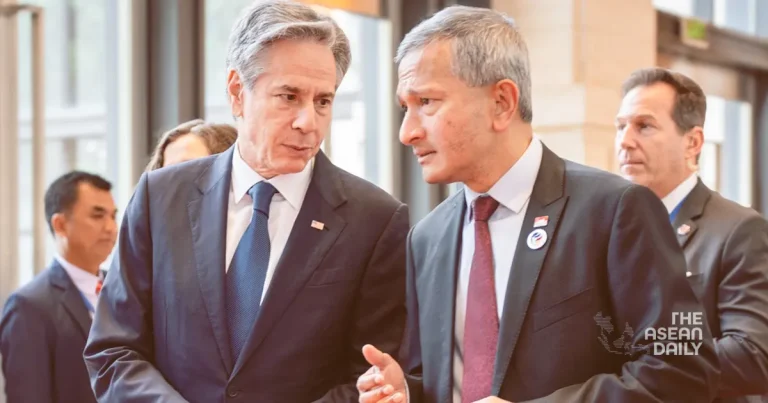31-7-2024 (SINGAPORE) Singapore and the United States have inked a landmark agreement to explore the potential of nuclear technology in addressing climate and energy challenges. The accord, colloquially known as a “123 Agreement”, was formalised on Wednesday, 31 July, during US Secretary of State Antony Blinken’s official visit to the city-state.
Foreign Affairs Minister Vivian Balakrishnan and Secretary Blinken put pen to paper on this historic deal, marking a significant step in bilateral relations and energy cooperation. However, both parties were quick to emphasise that this agreement does not signal an immediate shift in Singapore’s energy policy.
“Singapore has not made any decision regarding the deployment of nuclear energy,” the joint statement clarified. “Any such decision would necessitate comprehensive studies into the safety, reliability, affordability, and environmental sustainability of nuclear energy within our unique local context.”
The agreement, set to come into force by the end of 2024 and spanning three decades, opens doors for Singapore to engage with other nations utilising nuclear energy technologies with US-origin components or intellectual property. This positions the island nation at the forefront of nuclear research and development, despite most advanced nuclear reactor designs still being in their nascent stages.
The US, having 24 active 123 Agreements globally, including with regional powerhouses China and India, sees this as an opportunity to strengthen its presence in Southeast Asia. Singapore joins ASEAN counterparts Indonesia, Vietnam, and the Philippines in forging such partnerships with the US.
These 123 Agreements, named after Section 123 of the US Atomic Energy Act, provide a legal framework for peaceful nuclear cooperation. They facilitate the transfer of nuclear material, equipment, and components from the US to partner countries, while ensuring stringent non-proliferation safeguards.
The pact arrives amidst growing discussions about nuclear power’s role in Singapore’s green energy future. A 2022 report commissioned by the Energy Market Authority suggested that nuclear energy could potentially meet about 10% of Singapore’s energy needs by 2050, aligning with the country’s ambitious net-zero emissions target for the same year.
Second Minister for Trade and Industry Tan See Leng had previously announced plans to cultivate a pool of around 100 nuclear energy experts in the medium to long term. This agreement with the US is expected to accelerate this capacity-building initiative.
The collaboration extends beyond the 123 Agreement. Singapore will also participate in the US’ Foundational Infrastructure for the Responsible Use of Small Modular Reactor Technology (FIRST) program. This initiative aims to support partners in understanding advanced nuclear technologies, including small modular reactors, and addressing critical issues such as nuclear safety, security, and non-proliferation.
Through FIRST, Singapore gains access to a network of US civilian nuclear energy entities, including National Laboratories and companies at the cutting edge of nuclear technology development. This presents an unprecedented opportunity for knowledge transfer and capability enhancement in the nuclear field.




